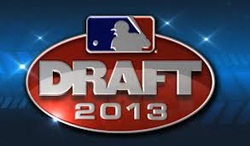
Some parts of my day have consisted of being in the office or traveling to games. The time spent so far in the office has consisted of making phone calls and reading NCAA eligibility rules and amateur rules that apply to players going into an MLB draft. For the most part, NCAA eligibility rules are very straight forward with players opting to enter the MLB draft. Any player who is in high school, Junior College, or University will lose their amateur status as a player if they sign any contract with a professional team or sports agent. Any player that commits to an agent is only providing a verbal agreement to allow them to represent them. The player cannot sign a contract with an agency while under the jurisdiction of the NCAA. By signing a contract with an agency or professional team, the player will no longer be eligible to participate in any baseball program that is part of the NCAA. The term “Amateur” refers to players who have never been signed to a contract under a professional team that provides compensation to the player. Eligibility rules are a little different.
Players can be eligible for the MLB draft if they are a high school senior, in their second year at a junior college, or turn 21 before the draft or within sixty days of the completion of the MLB draft. These rules will further be related to different tactics agents use when deciding on whether a player should sign out of high school or continue on to college.
Players can be eligible for the MLB draft if they are a high school senior, in their second year at a junior college, or turn 21 before the draft or within sixty days of the completion of the MLB draft. These rules will further be related to different tactics agents use when deciding on whether a player should sign out of high school or continue on to college.
 RSS Feed
RSS Feed